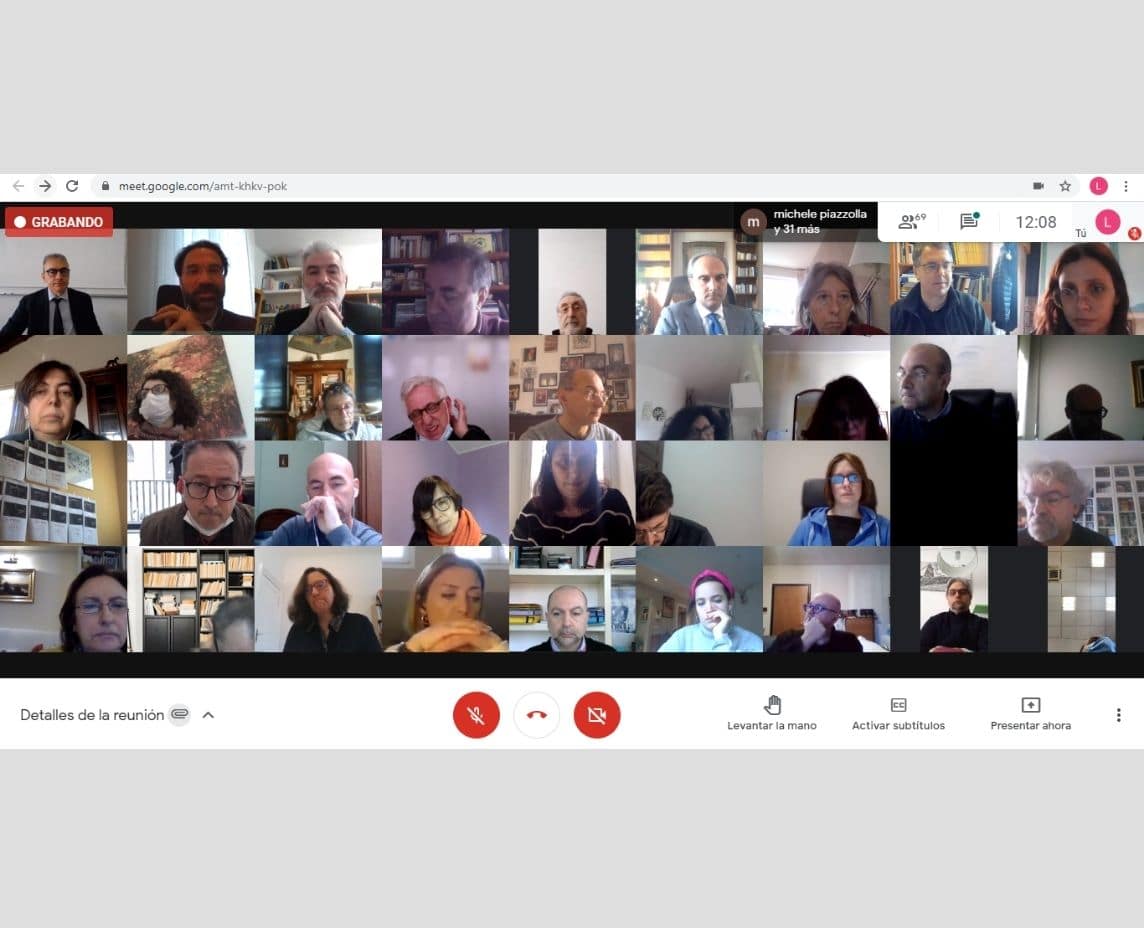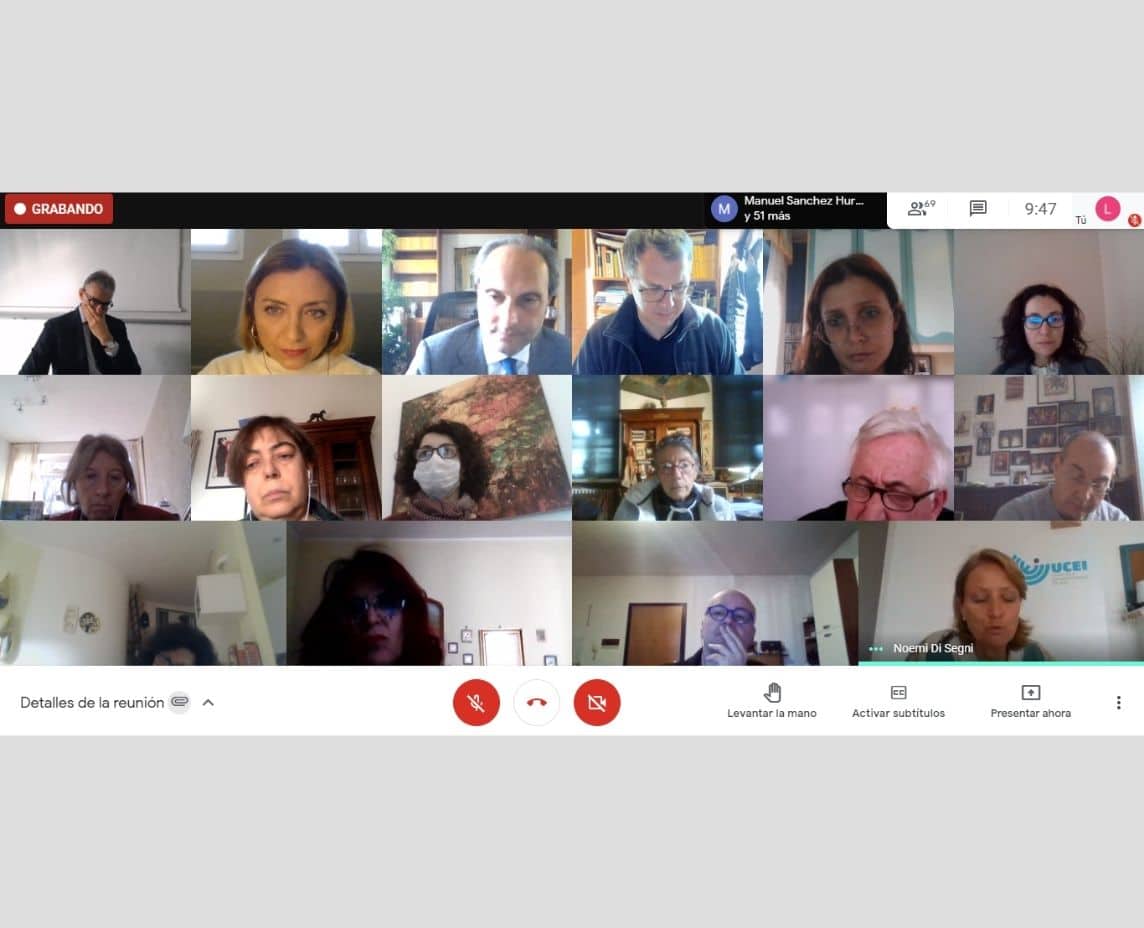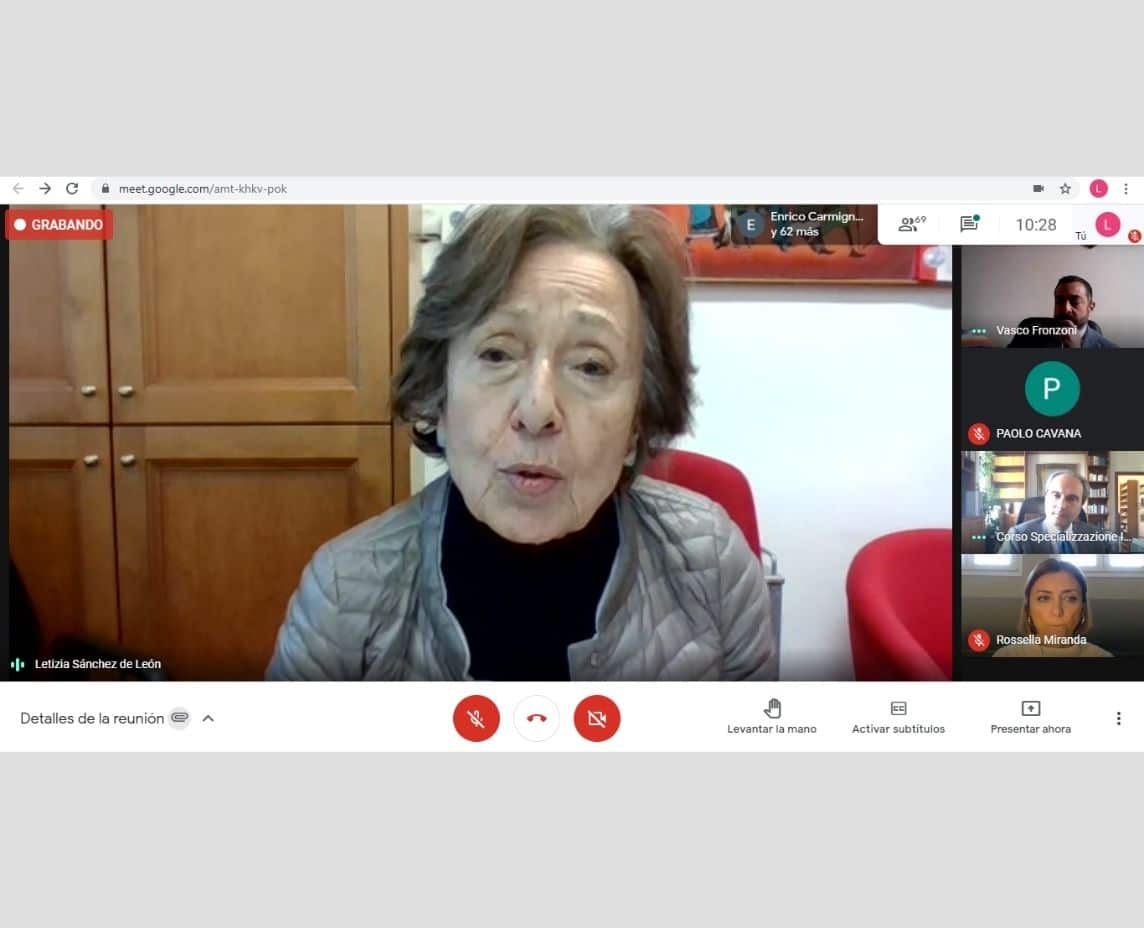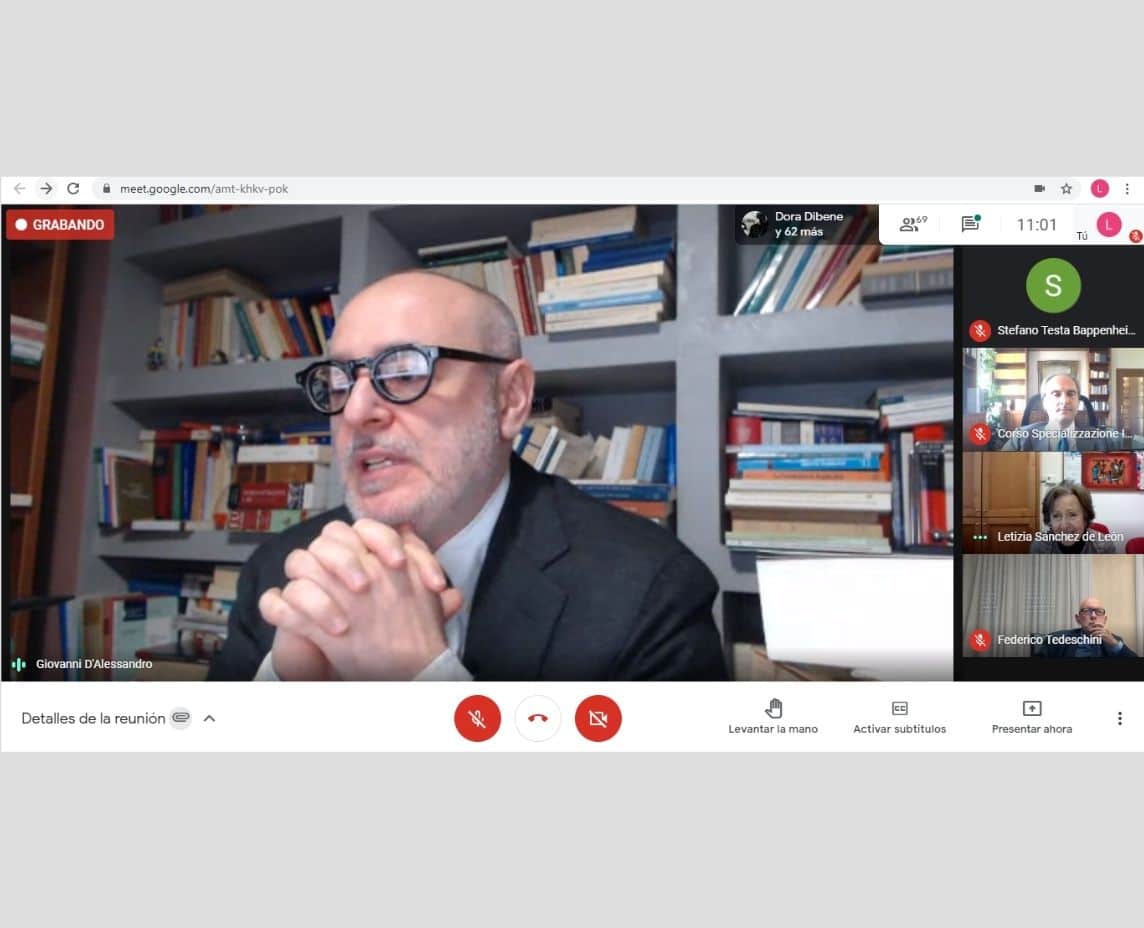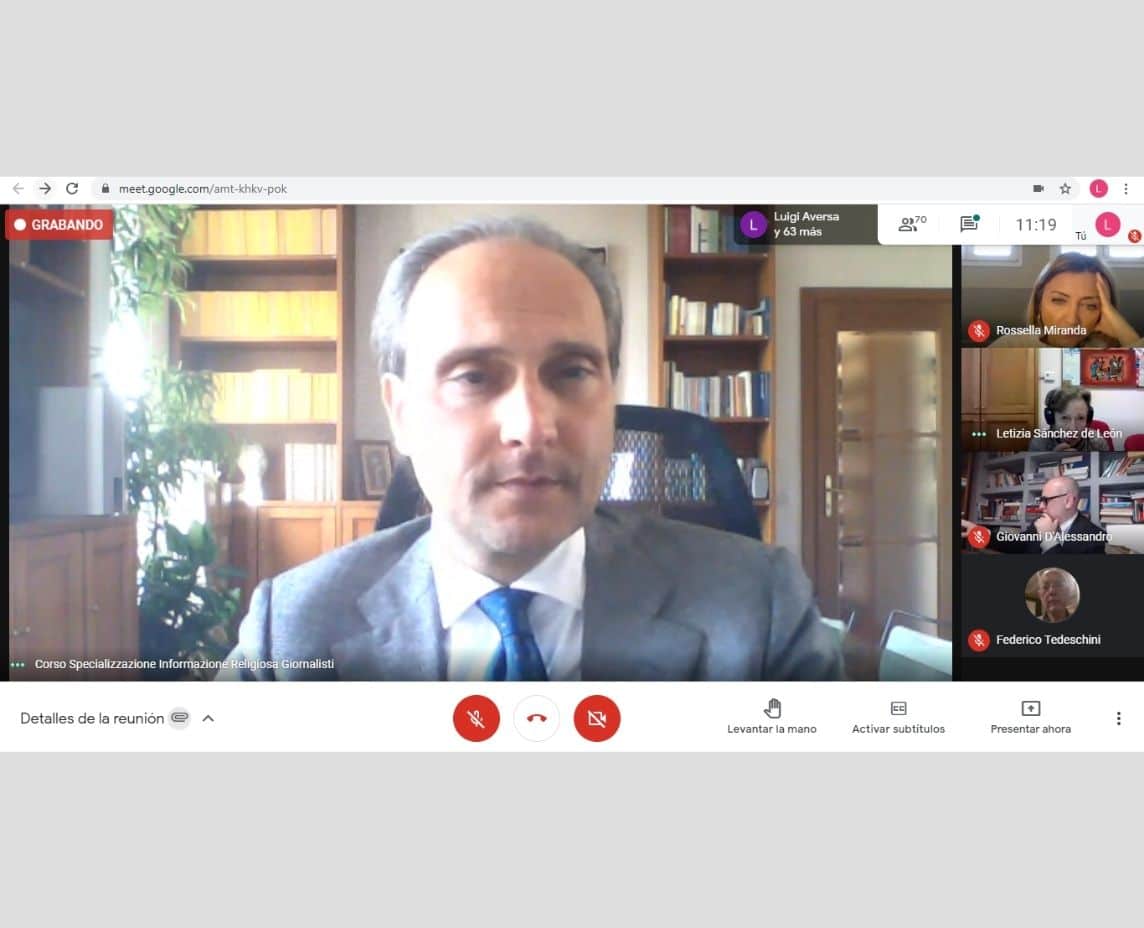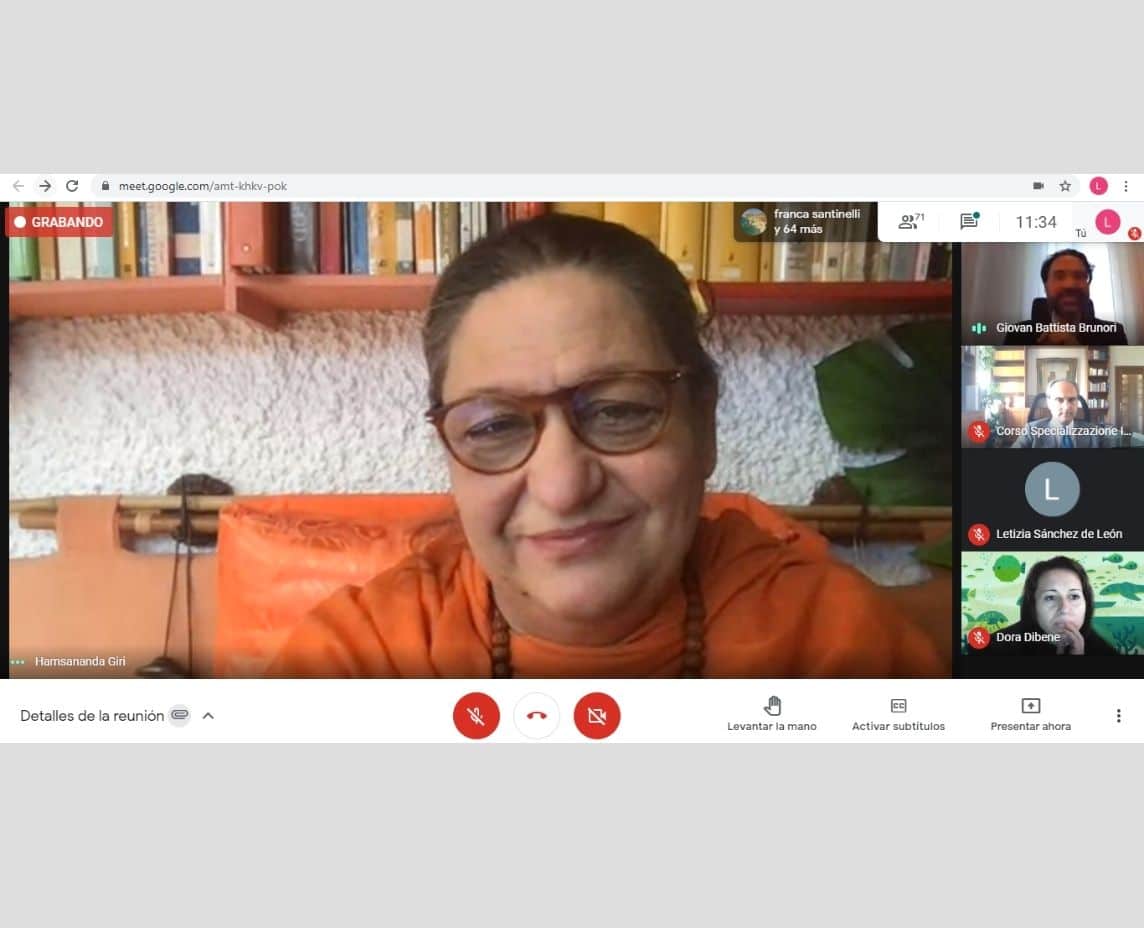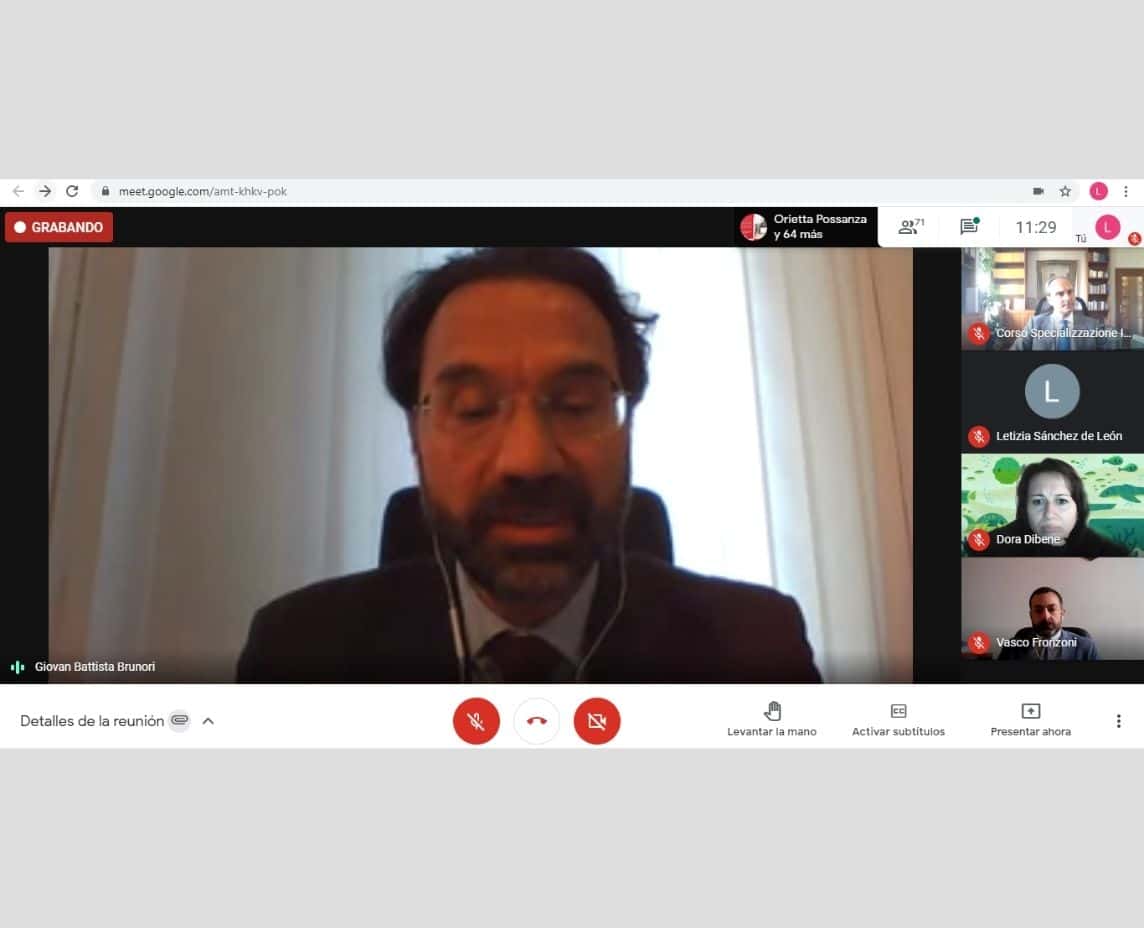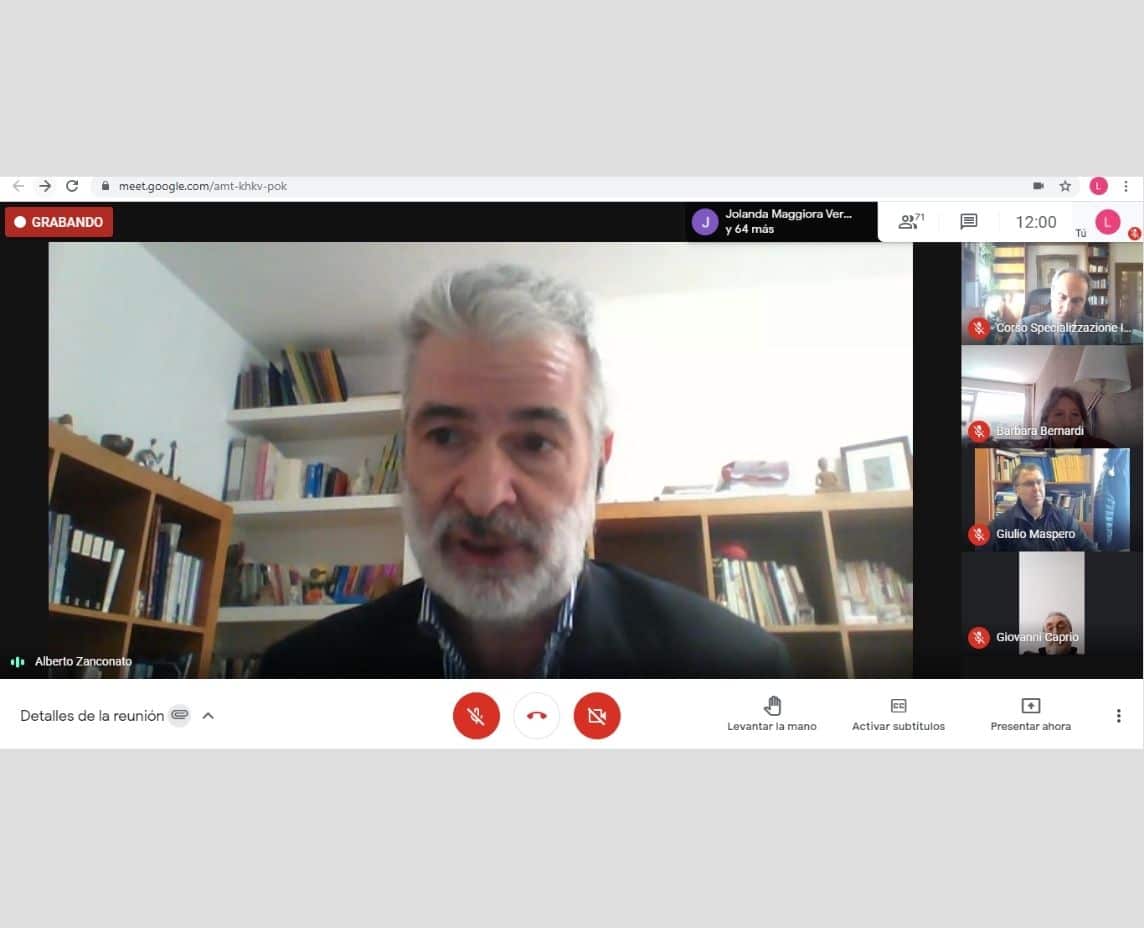On Friday 26 February 2021, at the initiative of the Commission on Journalism and Religious Traditions and the ISCOM Association, the webinar Freedom of expression, the right to satire and the protection of religious sentiment was held.
The study day provided an opportunity to re-discuss the contents of Freedom of Expression in relation to the protection of religious sentiment, taking into account the need to redefine limits and codes, in order to find a synthesis between freedom and respect for the sacredness of the other.
Article 21 of the Constitution, while in its first paragraph it guarantees the freedom of everyone to freely express their thoughts, in its sixth and last paragraph it determines the limits. In this balancing act, it is necessary to identify the correct limits of freedom of expression. The neminem laedere, inherited from the codes of Roman law, must also apply to freedom of expression and the right to satire, which must never cross the boundary of offending the sensibilities of others. Piero Sandulli
The theme of this webinar is crucial for the postmodern context in which we move. Modernity has left us with an individualistic and abstract conception of man. Instead, each of us is always a concrete person in relation to other people and our own identity includes relationships. This is why we cannot insult the mother of another human being, and why we must be extremely careful in our declarations about the religious life of our fellow human beings, whatever they may be. Giulio Maspero
Even a syllable, even an exclamation mark or a question mark can change the meaning and tone of a sentence written in freedom and can be reinforcing of the existence of the other or, on the contrary, invasive of the recognition of the other. The choice is ours. Noemi di Segni
In the contemporary world, on the one hand, there are growing needs and opportunities for expression and, on the other hand, fears and claims in defence of religion and religions. Believers can find themselves on one side or the other, for example when they feel the need to condemn homosexuality or false religion and take advantage of digital opportunities to do so, or when they fear that the LGBT+ agenda limits their freedom of education and claim the right not to be the object of hatred. Marco Ventura
Freedom of expression, of which satire is a legitimate manifestation against abuses of power, is a fundamental human right and a safeguard of a democratic and pluralistic society. However, it is also limited by respect for other fundamental rights, including religious freedom, which protects an important aspect of the human personality and has constitutional importance in the Italian legal system. No right can become a tyrant with respect to others. Paolo Cavana
Freedom of expression is a protected principle in Islam and derives from the more general principle of religious freedom. It is accompanied by those basic values that demand social harmony, tolerance and understanding from Muslims. The Qur’an prescribes that one should behave and express oneself with kindness, courtesy and discretion through the corollaries of hisba (to do good and avoid evil) and nasiha (to advise without interfering). Vasco Fronzoni
Starting from Lucian of Samosata’s Dialogues of the Gods, few areas of law such as the protection of religious sentiment are as rich in historical, cultural, political and legal correlations, phenotypes of a normative situation in which freedom of expression and the right to satire, on the one hand, and religious freedom and the protection of religious sentiment, on the other, must find a difficult balance, as numerous cases submitted to the judgement of the ECHR demonstrate. Stefano Testa Bappenheim
Following Italy’s accession to the ECHR, attention has shifted to cases in which freedom of expression is manifested through offences against religious feelings, and the case law of the ECHR Court has had to rule on several occasions on the relationship between Article 9 of the Convention – on “freedom of thought, conscience and religion” – and the subsequent Article 10 on freedom of expression. Federico Tedeschini
If it is true that satire is a right that falls within the freedom of thought, religious satire must be recognised as having peculiar characteristics, because religious beliefs are an integral part of a person’s spiritual identity. Consequently, desecrating or blasphemous satire towards the contents of a religion may have an immediate impact on the personal sphere of the believer, on his or her personal religious feeling, a good protected in the same way as freedom of expression. Giovanni d’Alessandro
The key word is respect: for the whole person. It is the prerequisite for a fair balance between freedom of expression and harmonious coexistence; it is both the seed and the fruit of non-violence. It manifests itself naturally, almost like an unwritten law, in thought, word and deed. The right at the basis of any freedom of expression, it must become a right and a duty as the only antidote to the drifting moral and ethical superficiality of a community. Svamini Hamsananda Ghiri
As journalists we often find ourselves in the situation of having to “manage” from a reporting point of view the hate speech of the people who are part of the news. It is a big dilemma, because the mission of the media is to report reality. María-Paz López
s it easy to exercise freedom of expression as a journalist working in the religious field? In the media, I think the most serious “sin” today is the lack of freedom from financial power. In the Catholic Church and in other religions, there is a lack of freedom, so that internal debate or external criticism is seen as something aimed at “destroying” the Church or the religion. Antonio Marujo
In the Middle East, I have seen several demonstrations against the Muhammad cartoons. Events with limited participation, but exaggerated both by those who, in those countries, use religion for political ends, and by those in the West who portray them as examples of the supposed “clash of civilizations”. It is our right, it is said, to hurt religious sensibilities because we have absolute freedom of expression. In reality, even in the West, it is the law that decides which sensibilities can be hurt and which cannot. Alberto Zanconato
Freedom of expression is the basis of a democratic society and characterizes the identity of the European Union, the homeland of rights, while the influence of countries that aspire to world leadership is growing without guaranteeing the fundamental rights of citizens. However, a secular democratic state guarantees social peace and promotes a proper balance between freedom of expression and respect for the dignity of every citizen, his or her ideas and respect for freedom of religion. Giovan Battista Brunori
It is legitimate to criticise – even through satire – the contents of a religion, but not so much as to border on contempt for the people who believe in that religion. Satire is not unrestricted; it cannot go beyond the limit of continence, which is necessary to prevent it from becoming an instrument of offence and incitement to hatred. “The protection of religious sentiment has come to acquire the significance of a corollary of the constitutional right to religious freedom” (Constitutional Court, judgement no. 329/1997). Antonino Pigeon





